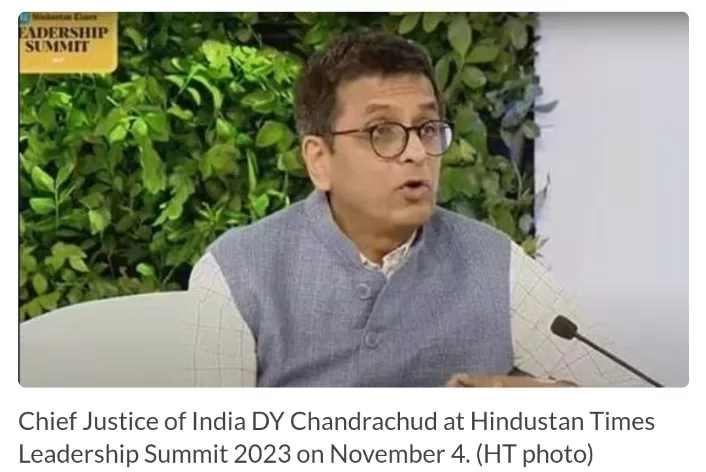NEW DELHI: In a recent legal exchange, Chief Justice of India (CJI) Dhananjaya Y Chandrachud stood resolute in his commitment to upholding the law and the Constitution, countering a lawyer’s plea to abolish the existing collegium system and the practice of designating senior advocates.
During the proceedings, lawyer Mathews J Nedumpara emphasized the need for reforms, particularly in the realms of the collegium system and the senior designation of advocates, as integral for propelling the judiciary to new heights. Justice Chandrachud, however, responded with a clear delineation of his role, stating, “As a lawyer, you have the freedom to pursue your heart’s desire. But as a judge of this Court, I am a servant of the law and the Constitution. I have to follow the position and the law laid down.”
Nedumpara represented a group of lawyers who brought forward challenges against the current judges’ selection mechanism and the prevalent practice of designating lawyers as senior advocates. One of the key pleas urged the abolition of the collegium system and a return to the National Judicial Appointments Commission (NJAC), which had been proposed in 2014 but was declared unconstitutional by the Supreme Court in 2015.
The lawyer’s petition specifically called for a review of the NJAC verdict, critiquing the collegium system as a “synonym for nepotism and favoritism.” In parallel, another plea sought a reassessment of a recent Supreme Court judgment affirming the practice of designating certain lawyers as senior advocates, deeming it “untenable” and creating an “artificial class of distinction.”
The NJAC, envisioned as an alternative system for judicial appointments, faced constitutional challenges, leading to its nullification. The ongoing legal discourse underscores the intricacies of judicial reform and the delicate balance between maintaining independence and addressing the evolving needs of the justice system.







